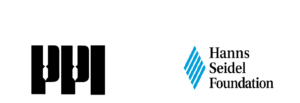By: Angelica B. Yambao
Magdalena Sub-Office, SDO Laguna
Ananias Laico Memorial Elementary School
The COVID19 pandemic had inevitably hit each one of us. Our everyday lives have never been the same. Prior to pandemic, a number of Filipinos are already experiencing struggles in putting nutritious and proper food on their tables – how much more today that there is already a threat to the food security in our country. As per a United Nations report, 59 million Filipinos had already been experiencing food insecurity even before pandemic.
With this, our Department of Education (DepEd), through the Bureau of Learner Support Services-School Health Division (BLSS-SHD), maintains it commitment to provide good nutrition to learners amidst the COVID-19 pandemic. As such, it shall continue the implementation of the School-Based Feeding Program (SBFP) to address hunger and encourage learners to enroll, contribute to the improvement of their nutritional status, provide nourishment for their growth and development and help boost their immune system, and enhance and improve their health and nutrition values.
UNICEF, 2020 cite on their findings that a well-nourished, healthy and educated population is the foundation for growth and economic development. Thus, investing in children’s nutrition, health and education during middle childhood, and sustaining this into adolescence, will help children to reach their full potential, become productive adults and break the intergenerational cycle of malnutrition.
With the resumption of face-to-face classes, a number of problems arise. Education and health crisis – which are already an old problem – just worsened through time. As its main task is to deliver and provide a meal or snack to its beneficiaries — feeding program provides nutritious food to the students to better address the scarcity of nutritious food available to children in their home. This has been one of the efforts being done to eradicate malnutrition and food insecurity.
One cannot emphasize the importance of school-based feeding program. It is a sound investment in as this aim to serve underprivileged individuals, especially those who live below the poverty line. Feeding programs are important to provide care and basic necessity to those who need them the most.
The advantage of school feeding goes far beyond the meal being given to them. It includes equity and inclusion in education as it gives proper assistance not only to their family, also to their education. In a study conducted by Adelman et al.,2019, girls in particular had shown encouraging results which have been documented on school performance through increased enrolment and sustained attendance. A number of studies have already proven that school feeding programs can improve the nutritional status of our students. It may reduce vulnerability and boost family incomes, particularly in times of crisis.
In humanitarian contexts, Aurino et al. (2019) emphasized that the school feeding can limit the negative consequences of emergencies on health, nutrition and education thus lowering barriers to accessing and completing education, especially for girls. Let us level up our efforts and double our tasks for feeding program. Let us help our students heal from the pandemic and make our schools a safe haven where they could be anyone they could be. hope that there will come a day that food insecurity is no longer a problem in our country — that all students will be provided with a proper nutritious meal every day of their lives which would aid them to become better citizens of our country.











